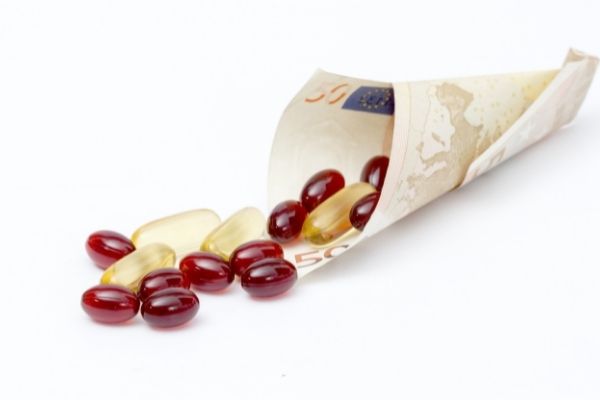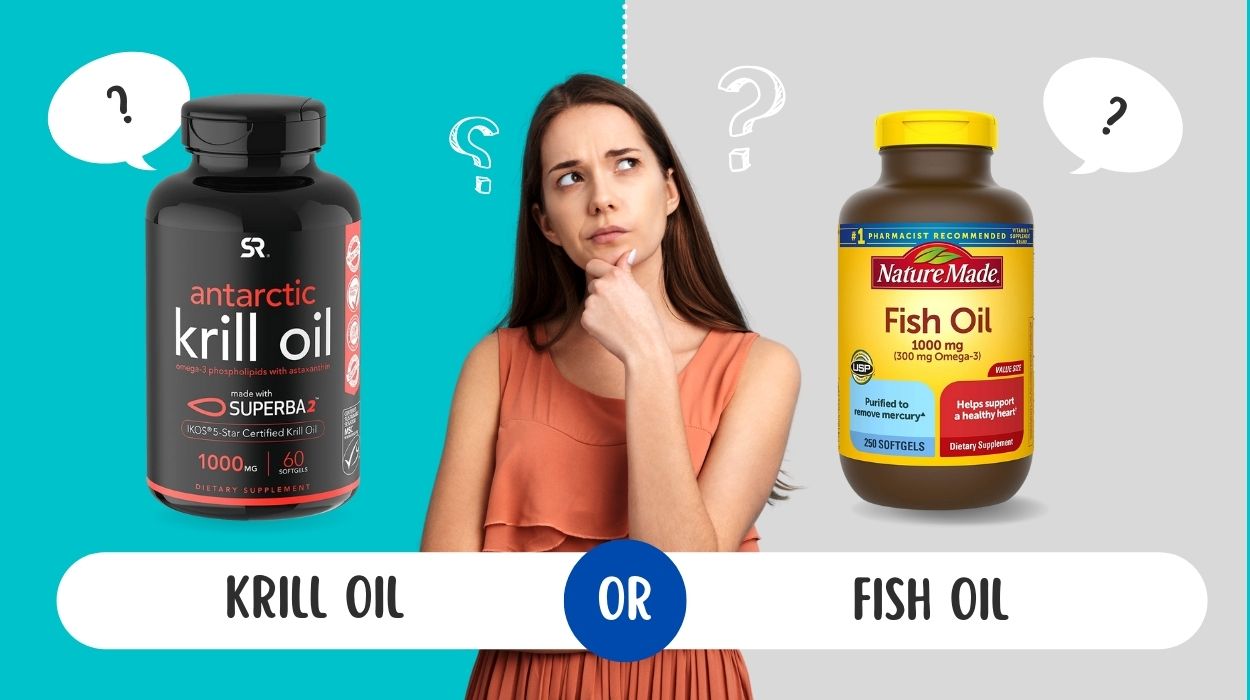Food is a vital part of everyone’s life. Cooking is an integral part of it. Choosing the correct cooking oil is crucial when it comes to cooking.
One of the most widely used culinary materials on the planet is oil. It is used in many ways, such as frying food, sautéing it in a pan, and even as a base for salad dressings and other sauces.
Vegetable oils including canola, maize, and soybean oil are the most often used cooking oils. These, on the other hand, are abundant in pro-inflammatory omega-6 fatty acids.
What is Krill Oil?

Krill oil is a type of fish oil that has recently become popular as a supplement. Because of its high content of anti-inflammatory omega-3 fatty acids, it is widely sought. It is considered the world’s most potent source of this crucial fatty acid.
This is where krill oil differs from typical fish oil supplements. It is extracted from the krill, a small crustacean prey for many larger sea animals, such as whales and seals. Most fish oils are derived from anchovies, sardines, and mackerel sources. The extraction is done using a technique called cold-pressing. This method is more natural than the hot-pressing process to extract fish oil.
Advantages of Krill Oil
There are many health benefits to taking krill oil. One of the most notable features is that it is high in omega-3 fatty acids. One of the most powerful sources of these fatty acids is krill oil. This is because of its high concentration of DHA and EPA.
- Krill oil is becoming increasingly popular as an alternative to traditional fish oil for its incredible anti-inflammatory and antioxidant benefits. It is becoming the supplement of choice for people looking to reduce their risk of developing heart disease or stroke.
- Not only is it highly concentrated in these critical fatty acids, but it also contains a low amount of omega-6 fatty acids. This makes it completely free of pro-inflammatory omega-6 fatty acids.
- It’s a one-of-a-kind vitamin that’s gaining popularity among athletes. It is claimed to offer several advantages. A few of these are mentioned further down.
What Exactly is Fish Oil?

Fish oil supplements are made up of fatty acids that are present in fish. The most common fish used for oil are salmon, mackerel, and herring. Any fatty fish, however, can be utilized. Dietary supplements containing fish oils are popular.
Capsules or pills are the most common forms of administration. They are also added to food or consumed as part of a diet.
The most common way to take fish oil is by consuming it as a dietary supplement. This can be in capsules, tablets, or a food supplement. It can also be consumed as part of a meal.
Advantages of Fish Oil
One of the most prominent benefits of fish oil supplements is that they are high in omega-3 and omega-6 fatty acids. They are a great source of the long-chain omega-3 fatty acid, called EPA. They’re also high in DHA, a kind of short-chain omega-3 fatty acid. These two fatty acids are abundant in fish oil.
- They are most often used to reduce the risk of heart disease and to improve the health of the heart and blood vessels. They have also been shown to improve blood lipid profiles and the metabolism of fat and cholesterol in the bloodstream.
- They are typically used to lower cholesterol and maintain a healthy heart. They are also used to improve brain function and alleviate depression and anxiety.
- They are often taken as a supplement or added to food. Fish oils have become increasingly popular as a supplement. They’ve been linked to a lower risk of heart disease and some types of cancer.
Difference Between Krill Oil and Fish Oil:

The most significant difference between krill oil and fish oil is that krill oil does not contain pro-inflammatory omega-6 fatty acids. This is because it does not use the hot-pressing process used to extract fish oil.
This process uses heat to separate the oil from the fish. The fish oil is then cooled down before being packaged and sold. In doing this, a number of pro-inflammatory omega-6 fatty acids are created. These are the same fatty acids that have been linked to a higher risk of heart disease and cancer.
While on the other hand, the concentration of these pro-inflammatory omega-6 fatty acids in krill oil is very low. This makes it a much better option than fish oil as a supplement. However, krill oil is not extracted through the use of heat. This makes it a much more potent source of anti-inflammatory omega-3 fatty acids, such as EPA and DHA.
Krill oil is a supplement extracted and made from krill. It is extracted through a natural process. This indicates it is far more eco-friendly than the other. This makes it an excellent choice for those looking to reduce their risk of developing cardiovascular disease or inflammatory conditions. It is also a good choice for those looking to improve their health and reduce their risk of developing certain cancers.
FAQs
1. Is it safe to use krill oil on a daily basis?
More than 5,000 mg of EPA and DHA per day, whether from diet or supplements, is not recommended (26). Finally, certain persons should avoid using krill oil without first seeing their doctor.
2. Is it preferable to take fish oil or krill oil if you have high cholesterol?
Krill oil also contains a phospholipid that is more easily absorbed by the body than fish oil. A study published in Pharmacy & Therapeutics discovered that taking 1 to 3 grams of krill oil daily reduced total cholesterol and triglycerides more efficiently than taking the same amount of regular fish oil.
3. Can it be safe to combine fish oil with krill oil?
Is it, however, safe to use both of these supplements? Yes, to put it briefly. While both krill oil and fish oil include EPA and DHA, they differ in how they react in our bodies and which additional nutrients they contain.
4. Is there any way to tell if krill oil interacts with any medications?
Krill oil has been shown to slow blood coagulation. Krill oil interacts with anticoagulant and antiplatelet medications, which inhibit blood coagulation. The risk of bruising and bleeding is raised when krill oil is used with medicines that reduce blood coagulation.
You May Also Like To Read:
Omega 3 Vs Fish Oil Vs Cod Liver Oil
Important Types of Omega-3 Fatty Acids
Benefits of Fish Oil for Hair and How to Use?
Conclusion:
Krill oil is better as an alternative to fish oil for its incredible anti-inflammatory and antioxidant benefits. Not only is it highly concentrated in these essential fatty acids, but it also contains a low amount of omega-6 fatty acids.
This makes it completely free of pro-inflammatory omega-6 fatty acids. It is becoming the supplement of choice for people looking to reduce their risk of developing heart disease or stroke.


